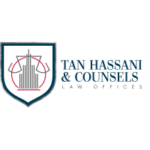-
Market overview: Please provide a high-level overview of the outsourcing market in your jurisdiction (e.g. who are the key players and in what sectors (public and private) are you seeing outsourcing services being adopted)?
Singapore is a highly open economy with widespread adoption of outsourcing across public and private sectors, and the market for outsourced services is expected to continue its growth trajectory. Key growth drivers include increasing demand for cloud services, digital transformation, adoption of emerging technologies like artificial intelligence (AI) and blockchain, cybersecurity solutions, and cost reduction and efficiency benefits across a wide variety of industries such as financial services, healthcare, retail, and telecommunications.
Services such as website management, cloud-based inventory management, online payments, and customer relationship management services in the retail and e-commerce sector are all witnessing increased spending.1
India, Indonesia, Malaysia, Vietnam and the Philippines are some of the most common offshore outsourced service destinations for Singapore businesses.
Footnote(s):
1 “Global IT-BPM outsourcing deals analysis: CY 2024”, March 2025, Deloitte Touche Tohmatsu India LLP.
-
Market overview: What is the current attitude of the government and of regulators to the use of outsourcing in your jurisdiction?
The Singapore Government actively supports outsourcing, particularly in IT, to encourage local businesses to enhance efficiency and innovation, and to stay competitive and adapt to rapidly evolving technological landscapes.
In this regard, the Singapore government highly encourages businesses to adopt IT outsourcing by offering grants and incentives such as the Productivity Solutions Grant, which helps Singapore companies improve their productivity and automate existing processes through procurement of IT solutions and equipment from third party vendors.2
At the same time, the authorities emphasise the importance of robust risk management and compliance, by reminding businesses to carry out due diligence when engaging vendors, and legislation and regulations have been framed to place the primary responsibility for compliance with the laws with the business, instead of the outsourced provider.
Footnote(s):
2 “Productivity Solutions Grant (PSG)”, https://www.enterprisesg.gov.sg/financial-support/productivity-solutions-grant
-
Procurement: Are there specific procurement-related laws or regulations governing outsourcing by public sector or government bodies?
Outsourcing by public sector or government bodies in Singapore is subject to the Government Procurement Act 1997 and subsidiary legislation, which are aligned with international standards and commitments, as Singapore is a party to the World Trade Organisation’s Agreement on Government Procurement and many Free Trade Agreements.
Singapore’s Government Procurement Policy Framework, which governs how government agencies procure goods and services from the private sector, generally requires open tenders and quotations to ensure transparency, open and fair competition, and value for money. Procurement opportunities are regularly published on the Government’s GeBIZ portal, which allows outsourcing providers to search for government procurement opportunities, download tender documents, and submit their bids online.
The Auditor-General’s Office regularly audits government agencies and public sector entities for compliance with official policies and rules, including use of public moneys for procurement and contract management. The results of these audits are published annually to enhance public accountability.
-
Procurement: Are there specific procurement-related laws or regulations governing outsourcing by private sector organisations?
There are no procurement laws or regulations of general application. However, the general principle across sectors is that outsourcing does not absolve the procuring customer of their primary responsibilities to comply with laws and regulations.
Certain regulated industries are subject to sector-specific legal and regulatory frameworks. Please refer to Question 6 below for details.
-
Laws and Regulations: Are there any other specific laws or regulations that apply to outsourcing? If not, what key general laws and regulations are most relevant?
There are no other types of laws or regulations that apply to outsourcing other than those mentioned in Questions 3 and 4 above. However, some of the general laws that require special attention in the course of entering into outsourcing arrangements are set out below:
- Competition Act 2004 prohibits anti-competitive practices, such as bid-rigging or collusive tendering.
- Prevention of Corruption Act 1960 governs offences related to corruption and bribery in both public and private sectors.
- Penal Code 1871 covers general criminal offences, including offences such as criminal breach of trust, cheating, and abetment relevant to procurement fraud or misconduct.
- Personal Data Protection Act 2012 regulates the general collection, use, disclosure and protection of personal data, and has wide application in procurement settings, where the outsourced provider may act as data intermediary for the procuring customer. Please see Question 12 below for details.
- Official Secrets Act 1935 regulates the unauthorised disclosure of official and confidential information, which may arise in procurement settings involving the public sector or government bodies in Singapore.
- Cybersecurity Act 2018 regulates owners of critical information infrastructure, and has wide application to any IT outsourcing arrangement involving essential services, which are defined as including energy, info-communications, water, healthcare, banking and finance, security and emergency services, aviation, land transport, maritime, Government services, and the media.
- Companies Act 1967 regulates corporate governance, directors’ duties, and related-party transactions which may intersect with procurement decisions.
- Misrepresentation Act 1967 governs liabilities arising from false or misleading statements made during procurement negotiations.
- Sale of Goods Act 1979 applies to the sale of goods under procurement contracts, including implied terms as to quality and fitness.
- Unfair Contract Terms Act 1977 limits the enforceability of unfair exclusion clauses in procurement contracts.
-
Laws and Regulations: Do any specific regimes apply to outsourcing arrangements in particular sectors (e.g. financial services)?
Singapore does not have procurement laws or regulations of general application, but some regulated industries are subject to sector-specific legal and regulatory frameworks. A non-exhaustive list is set out below.
- The financial services sector is subject to oversight by the Monetary Authority of Singapore (“MAS”), which actively issues outsourcing regulations and guidelines on risk management practices pertaining to the management of outsourced relevant services for banks and other financial institutions, including the Guidelines on Outsourcing (Banks), Guidelines on Outsourcing (Financial Institutions other than Banks) and the Guidelines on Risk Management Practices – Technology Risk. In addition to guidelines, the MAS has also issued Notice 658 Management of Outsourced Relevant Services for Banks and Notice 1121 Management of Outsourced Relevant Services for Merchant Banks, which set out requirements that banks and merchant banks in Singapore have to comply with for the purposes of managing risks associated to outsourced relevant services, including but not limited to requirements to maintain and update a register of outsourced relevant services, and to conduct due diligence on the outsourced providers.
- The healthcare sector is subject to the Healthcare Services Act 2020 and licensing conditions that hold them accountable for providing private healthcare and clinical services. A provider of a licensable healthcare service is responsible for putting in place relevant processes and risk mitigation measures to ensure that its outsourced providers do not breach any of the licensing conditions, and to conduct routine checks and audits on the outsourced provider.
- The telecommunications sector is subject to oversight by the Info communications Media Development Authority (“IMDA”), which does not prohibit outsourcing within the sector, but holds licensees fully liable for the acts or omissions of their agents, independent contractors or sub-contractors in performing their duties.
- The cybersecurity sector is subject to the Cybersecurity Act 2018 (“CSA“), which requires cybersecurity service providers to maintain a record of all individuals (whether employees or outsourced providers) involved in providing any cybersecurity services.
- The electricity and gas industry are subject to oversight by the Energy Market Authority, with a focus on operational reliability and cybersecurity, regardless of whether any service is conducted by a licensee or its outsourced provider.
- The aviation sector is subject to oversight by the Civil Aviation Authority of Singapore, which requires dominant airport licensees not to outsource, delegate or require the performance of airport services and facilities with the aim of circumventing the Airport Competition Code.
- The upcoming Digital Infrastructure Act (scheduled to be tabled in Parliament later in 2025) is also expected to include requirements for cloud service providers to implement an effective control framework over third-party service providers, with due diligence and contractual provisions addressing subcontracting risks.
-
Competition law: To what extent might outsourcing arrangements require notification or approval under merger control rules?
Section 54 of Singapore’s Competition Act 2004 (the “Act”) prohibits mergers that have resulted, or may be expected to result, in a substantial lessening of competition within any market in Singapore for goods or services. The definition of “merger” under this section does not only refer to mergers in the usual context of mergers and acquisitions (“M&A”), but also includes contracting arrangements whereby one or more persons or private sector undertakings acquire direct or indirect control of the whole or part of one or more other private sector undertakings by reason of rights, contracts or any other means, or any combination of rights, contracts or other means, thereby enabling decisive influence to be exercised with regard to the composition, voting or decisions of the organs of that undertaking.
In the context of outsourcing, these may include situations where an outsourced provider has only one or a few procuring customers who are in the same or similar market sector, which enables the procuring customers to exercise control over the business of the outsourced provider, or where the outsourcing arrangement results in significantly less supply available for other competing purchasers.
Ultimately, the Competition & Consumer Commission of Singapore (“CCCS”) will assess on a case-by-case basis whether an outsourcing arrangement raises competition concerns as the substantial lessening of competition (SLC) test is highly specific to each market sector and the market power of each party.
-
Competition law: To what extent are the terms of outsourcing agreements the subject of restrictions under competition law?
The CCCS will take a global view of the agreements and conduct of the parties when considering whether any private sector undertaking has infringed the Competition Act 2004 (the “Act”). In the context of outsourcing agreements, the following categories of contractual terms require special attention:
- Contractual terms imposing exclusivity or non-compete obligations in horizontal outsourcing arrangements (i.e. agreements between competitors) may effectively partition markets or limit output, which may infringe Section 34 of the Act, which prohibits agreements with the object or effect of preventing, restricting, or distorting competition.
- Contractual terms requiring reciprocal subcontracting may potentially lead to an overall decrease in the number of producers of certain products and increases the common cost of both businesses due to the reciprocal purchasing, and may infringe Section 34 of the Act, which prohibits agreements with the object or effect of preventing, restricting, or distorting competition.
- Contractual terms requiring the sharing of information may also become a conduit by which parties share sensitive and confidential commercial information on sales, pricing or output strategies or future intentions for other products and services, beyond what is necessary, leading to an appreciable adverse effect on competition.
- If a party in an outsourcing agreement holds a dominant position in a relevant market, certain restrictive terms (e.g. exclusivity, refusal to deal with others, imposed pricing conditions, etc.) may amount to an abuse of market power by a dominant undertaking, which is prohibited under Section 47 of the Act. For instance, a dominant firm requiring its outsourcing partner or customers to use it exclusively (or to not assist the dominant firm’s competitors) can foreclose market access to rivals, which CCCS deems abusive.
- If a party in an outsourcing agreement holds a dominant position in a relevant market, exclusive purchasing or supply obligations, or other vertical restraints like tying or full-line forcing may also may amount to an abuse of market power by a dominant undertaking, which is prohibited under Section 47 of the Act.
-
Intellectual property (‘IP’) rights: What IP (registrable and non-registrable) is typically created in the course of an outsourcing arrangement?
Registrable IP that may be created in the course of an outsourcing arrangement include:
- patentable inventions and industrial designs (also known as registered designs and design patents), especially in outsourcing arrangements involving product development, design or engineering;
- plant variety rights and layout designs of integrated circuits which are registrable IP, in sector-specific outsourcing arrangements involving research and development (R&D); and
- trade marks and service marks which may be registered, in outsourcing arrangements involving graphic design and marketing services.
More commonly, however, non-registrable IP are created in the course of an outsourcing arrangement.
- Confidential information and trade secrets, including know-how and methodologies, are the most common category of non-registrable IP which may be produced in the course of an outsourcing arrangement. These are further discussed in Question 11 below.
- Authorial works including but not limited to software source code, architecture diagrams, technical documentation, training materials, reports and others, are protected automatically under the Copyright Act 2021 without the need for registration.
- Entrepreneurial works such as sound recordings, films, cable programmes and broadcasts are also protected under the Copyright Act 2021 without the need for registration.
-
Intellectual property (‘IP’) rights: In an outsourcing arrangement, would any contractual terms or formal steps be required to vest supplier-created IP in the customer?
Under Singapore law, the general rule is that the creator of IP will own that IP in the absence of an agreement to the contrary, save that employers own IP created by their employees in the course of employment. Accordingly, express contractual terms are required in the outsourcing agreement to vest supplier-created IP in the procuring customer, if intended. Outsourcing agreements typically include an IP ownership or IP assignment clause dealing with the ownership of all new IP developed by the outsourced provider in the course of providing the services (often termed “Foreground IP”), which is distinct from each party’s pre-existing IP (often termed “Background IP”).
In addition to contractual language, certain formalities must be adhered to in order to effectively transfer IP. Although copyrighted works are not registrable, the Copyright Act 2021 provides that assignment is not valid unless made in writing and signed by or on behalf of the assignor. The same follows for registrable IP such as patents, trade marks and registered designs.
Where such registrable IP is the subject of an application or registration, the application and registration number of each transferred IP right should be specified in the assignment agreement, and the particulars of such assignments should be recorded with the Intellectual Property Office of Singapore (IPOS) to be effective against third parties.
It is therefore prudent to include an obligation in the outsourcing agreement that the owner of any Foreground IP by operation of law is required to take all necessary actions and to execute all necessary documents needed to perfect the transfer to the intended owner of the Foreground IP.
-
Intellectual property (‘IP’) rights: How are confidential information, know-how and trade secrets protected in your jurisdiction?
Confidential information, know-how, and trade secrets are protected primarily through contractual obligations or the common law of confidence. Remedies for breach include injunctions (to restrain further disclosure) and damages or an account of profits.
In most outsourcing agreements, parties usually include robust confidentiality clauses with a broad definition of “Confidential Information” and limit the use of such information for the purposes of fulfilling the outsourced service. Breach of such clauses may trigger termination and may also be excluded from any liability cap.
Where there is no express contractual obligation or where express terms are so plainly insufficient that they do not assuage conscience, additional or more extensive obligations of confidentiality may also arise in equity. In a claim for breach of confidence in equity, the plaintiff can claim relief for either “wrongful gain”, to address any harm or disadvantage they suffered due to the unauthorised use of that confidential information; or for “wrongful loss” to address the potential harm or loss resulting from the loss of confidentiality of that information.
Beyond civil liability, criminal liability may also arise in relation to confidential information, including but not limited to:
- Under the Official Secrets Act 1935, it is an offence to communicate official government information without authorisation, which is relevant in the context of government sector outsourcing. Individuals could face prosecution in addition to contractual termination.
- Under the Computer Misuse Act 1993, contractors who unlawfully access or modify computer material, or unlawfully use, intercept or obstruct the use of computer services could potentially face charges, which is relevant in the context of IT outsourcing where outsourced providers may have wide-ranging access to the procuring customer’s computer systems.
-
Data: What is the regime in your jurisdiction for regulating the protection and processing of personal data and what are the main implications for outsourcing arrangements?
Singapore’s Personal Data Protection Act 2012 (“PDPA”) governs how private sector organisations collect, use, disclose, and protect data about individuals, and is subject to the oversight of the Personal Data Protection Commission (“PDPC”). Any outsourcing arrangement involving personal data (for example, HR outsourcing solution handling employee data, or an IT vendor processing customer records) must comply with the PDPA.
The main implications for outsourcing arrangements include the need to address compliance with all the PDPA obligations, in particular the following which should be addressed in the outsourcing agreement or a separate data processing agreement:
- Purpose limitation obligation: to only collect, use or disclose personal data for the purposes that a reasonable person would consider appropriate under the given circumstances and for which the individual has given consent;
- Protection obligation: to make reasonable security arrangements to protect the personal data against unauthorised access, collection, use, disclosure or similar risks;
- Retention limitation obligation: to cease retention of personal data or dispose of it in a proper manner when it is no longer needed for any business or legal purpose;
- Transfer limitation obligation: not to transfer personal data to another country unless the recipient of the personal data is bound by legally enforceable obligations to ensure that the standard of protection is comparable to the protection under the PDPA – notably, there is no data localisation requirement;
- Data breach notification obligation: to notify the PDPC and the affected individuals as soon as practicable if a data breach is likely to result in significant harm to individuals, and/or are of significant scale.
Crucially, outsourcing does not absolve the procuring customer of its obligations as the data controller even if an outsourced provider is performing the data processing as the data intermediary. Data intermediaries are directly subject only to the PDPA’s protection obligation, retention limitation obligation, and obligation to assist with data breach notification obligation, whereas all other obligations remain with the procuring customer.
Sector-specific regulations also apply to the protection and processing of personal data:
- Financial services sector: Privacy of customer information is protected under the Banking Act 1970, and where banks outsource functions involving customer data, MAS regulations require that the outsourcing be subject to conditions ensuring confidentiality is preserved.
- Healthcare sector: Healthcare providers have duties of medical confidentiality by statute and ethics – a healthcare outsourced provider (like cloud storage of medical records or a vendor processing test results) must comply with those in addition to PDPA.
- Public sector: Public sector agencies are excluded from the PDPA but are governed by other frameworks such as the Public Sector (Governance) Act 2018, which criminalises the misuse or unauthorised disclosure of personal data by public officers.
-
Data: What is the regime in your jurisdiction for regulating the processing of non-personal data and what are the main implications for outsourcing arrangements?
Non-personal data (information not relating to an identifiable individual) are not protected by any specific regime or legislation equivalent to the PDPA. Instead, the processing of non-personal data in outsourcing is largely regulated by contractual and sector-specific measures.
Sensitive business data are generally protected by contract or the common law of confidence (as discussed in Question 11 above), but in the context of cross-border outsourcing arrangements, the procuring customer should ensure robust contractual protection in case the common law of confidence is not recognised in that jurisdiction.
Sectoral regulations also play a key role in governing certain types of non-personal data. For example, the privacy of customer information under the Banking Act 1970 covers information on corporate entities, not just individuals, and includes account information. A bank must ensure that when it outsources functions (say, transaction processing or IT support that involves customer account data), the service provider is bound to the same level of secrecy. MAS guidelines on outsourcing explicitly require banks to obtain written confidentiality undertakings from vendors and to ensure compliance with the Act.
-
Cyber: Does your jurisdiction have specific cybersecurity legislation or regulations and what are the main implications for outsourcing arrangements?
Singapore has specific cybersecurity legislation, primarily the CSA, along with various regulations and guidelines, which have an impact on outsourcing arrangements.
The Act protects critical information infrastructure (“CII”) involving essential services, which are defined as including energy, info-communications, water, healthcare, banking and finance, security and emergency services, aviation, land transport, maritime, Government services, and the media. In May 2024, the scope of the Act was expanded to cover not only CIIs but also systems of “temporary cybersecurity concern” and certain digital infrastructure service providers.
Owners of designated CII must comply with codes of practice and cybersecurity standards issued by the Commissioner of Cybersecurity, promptly report cybersecurity incidents, conduct regular audits and risk assessments, and may be required to participate in cyber exercises. When a CII owner outsources any part of those critical systems, it remains responsible for compliance, hence the special attention should be made to ensure that the outsourced provider is obligated to meet all relevant cybersecurity requirements and to cooperate with any audits or inspections.
Outsourced providers of cybersecurity services including managed security operations centre (SOC) monitoring services and penetration testing services are also required to be licensed under the Act. Procuring customers should conduct due diligence or audits in this regard.
-
Technologies: To what extent are certain technologies commonly used in outsourcing arrangements (e.g. artificial intelligence, robotic process automation, cloud computing and blockchain/distributed ledger technologies) the subject of specific regulations?
The following technologies commonly used in outsourcing arrangements are subject to varying levels of regulation, with most limited to guidelines which are industry-led or government-endorsed best practices rather than binding law. Be that as it may, these guidelines have an impact on outsourcing arrangements as procuring customers often incorporate them to align with regulatory expectations.
- Artificial Intelligence (AI): Singapore introduced the 2019 Model AI Governance Framework and the 2024 Model AI Governance Framework for Generative AI to guide organisations on ethical AI adoption, testing and governance, emphasising accountability, transparency, and fairness. The Cyber Security Agency of Singapore has also issued the Guidelines and Companion Guide on Securing AI Systems to raise awareness of adversarial attacks and other threats that could compromise AI behaviour and system security, and guide system owners on implementation of security controls and best practices to protect AI systems against potential risks.
- Robotic Process Automation (RPA): While there are no specific regulations for RPA, its use in outsourcing arrangements is subject to general IT, data protection, and cybersecurity laws, such as the PDPA and the CSA.
- Cloud Computing: Use of cloud computing in outsourcing is subject to laws like the PDPA and specific guidance from the MAS, particularly in the financial sector. MAS-issued guidelines on outsourcing emphasise risk management, data protection, and operational resilience for cloud-based services.
- Blockchain/Distributed Ledger Technologies (DLT): While blockchain technology itself is not regulated, activities involving it—such as payment processing or record-keeping—must comply with applicable laws, including the Payment Services Act 2019 and relevant record-keeping or finance regulations. Licensing and compliance obligations may be triggered depending on the use case. These regulations address issues like anti-money laundering (AML), counter-terrorism financing (CTF), and consumer protection.
Existing regulations, such as the PDPA, CSA, and sector-specific laws, continue to apply based on the context and impact of their use.
-
Employment law: Do your jurisdiction’s employment laws and regulations have specific implications for outsourcing arrangements?
Singapore’s employment laws do not establish an outsourcing-specific regime, but general principles and the Employment Act 1968 (“EA”) still apply. The key implications for outsourcing arrangements include the following:
- Compliance with the EA: Outsourced workers must receive fair treatment, including proper wages, working hours, and leave entitlements.
- Workplace Safety and Health: Employers, including those engaging outsourced workers, must ensure compliance with the Workplace Safety and Health Act 2006 to provide a safe working environment.
- Best Sourcing Practices: The Ministry of Manpower encourages procuring customers to adopt best sourcing practices, which emphasise quality and fair treatment of workers (outsourced or otherwise), including proper wages and working conditions.
- Workplace Fairness Act 2025: New anti-discrimination laws could impact outsourcing arrangements, particularly in cases where unfair or discriminatory requirements are imposed on outsourced workers.
- Tripartite Guidelines on Fair Employment Practices: The Tripartite Guidelines provide non-binding but influential recommendations on the fair treatment of outsourced workers, which can affect contractual terms and practices.
-
Employment law: How are employees transferred under an outsourcing arrangement?
Under Singapore law, there is no automatic transfer of employees in outsourcing arrangements. Section 18A of the EA only provides for the automatic transfer of employees when a business (or part of it) is transferred as a going concern. Routine outsourcing, such as shifting functions to an outsourced provider or switching providers, does not qualify under Section 18A.
Employee transfers require negotiation between the procuring customer and outsourced provider. This may involve deciding on severance packages, re-employment offers, or other contractual agreements. Employers are encouraged to consult and notify affected employees about changes and comply with the Tripartite Guidelines recommendations for fair treatment.
-
Tax: What are the general tax considerations in your jurisdiction with implications for outsourcing arrangements?
The general tax considerations applying to outsourcing arrangements in Singapore include:
- Goods and Services Tax (GST): Local supply of services is subject to GST (9% as of 2025), meaning a Singapore-based outsourced provider will charge GST on outsourcing fees. If services are procured from overseas, the reverse charge mechanism may apply, requiring the local business to account for GST on imported services, unless an exemption applies. No GST is charged if services are performed entirely outside Singapore (zero-rating for exports and international services).
- Cross-Border Payments and Withholding Tax: Payments to foreign service providers can trigger withholding tax obligations. For instance, royalty payments for the use of software and intellectual property in Singapore (common in IT outsourcing) attract a withholding tax of 10%. Double tax treaties may reduce these rates.
- Corporate Income Tax: Payments to outsourced providers are generally deductible business expenses for the procuring customer. Outsourced providers are taxed on their income at Singapore’s corporate income tax rate of 17%.
- Transfer Pricing: If outsourcing involves related parties (e.g., an overseas service centre), Singapore’s transfer pricing guidelines require transactions to be conducted at arm’s length. Proper documentation is necessary to comply with these rules.
- Permanent Establishment Risk: Cross-border outsourcing arrangements must manage permanent establishment risk, ensuring that the setup does not unintentionally create a taxable presence for a foreign entity in Singapore or vice versa.
-
ESG: Are there any specific ESG requirements in your jurisdiction (e.g. relating to carbon emissions, modern slavery, anti-bribery/corruption, waste electronic equipment, etc.), and what are the implications of these for outsourcing arrangements?
Singapore has specific ESG requirements impacting outsourcing arrangements, covering areas like carbon emissions, modern slavery, anti-bribery/corruption, waste management, and data privacy. Key points include:
- Carbon Emissions: Listed companies must disclose climate-related information, including Scope 1 and 2 emissions, under the Singapore Exchange (SGX) guidelines. Outsourced providers involved in outsourcing arrangements may need to align with these standards to support procuring customers’ ESG reporting obligations.
- Modern slavery: All forms of forced labour are prohibited under laws like the Prevention of Human Trafficking Act 2014. Procuring customers are encouraged to perform due diligence on outsourced providers to ensure ethical labour practices. Contracts often include clauses requiring compliance with labour standards and allowing termination for violations.
- Anti-bribery and corruption: The Prevention of Corruption Act 1960 strictly prohibits bribery, and no contractual term can excuse corrupt practices. Individuals and companies involved face prosecution and public-sector debarment for violations. Outsourcing agreements typically oblige outsourced providers to adhere to anti-corruption laws, permit audits, and to mitigate bribery risks.
- Waste electronic equipment: Regulated under the Resource Sustainability Act 2019, e-waste management obligations apply to businesses outsourcing IT services. Procuring customers must ensure outsourced providers comply with recycling and disposal requirements.
The implications of these requirements for outsourcing arrangements are that procuring customers must assess ESG risks in their supply chain and ensure outsourced processes align with ethical, environmental, governance standards. When entering into outsourcing agreements, contractual obligations should be imposed on outsourced providers to comply with ESG regulations, including labour laws, anti-corruption laws, and environmental standards, and to provide data for ESG disclosures, particularly emissions and sustainability metrics.
-
Cross-border: Do cross-border or multi-jurisdictional outsourcing arrangements raise any specific challenges or concerns in your jurisdiction (e.g. relating to export control or data transfer laws)?
Cross-border or multi-jurisdictional outsourcing arrangements in Singapore raise several challenges, particularly relating to data privacy, export controls, and conflicts between Singaporean laws and the outsourced provider’s home jurisdiction, especially in areas like intellectual property and labour laws.
Under the PDPA, personal data transferred out of Singapore must receive protection comparable to Singapore’s laws. This is often achieved through legally enforceable obligations, such as data protection clauses or standard contractual clauses such as EU Standard Contractual Clauses (SCC) and ASEAN Model Contractual Clauses (MCC). Consent from individuals may also be required. Businesses must consider foreign data privacy regimes, such as the General Data Protection Regulation (GDPR), if EU resident data is involved.
Public sector agencies may require data to be locally hosted or impose security clearance for overseas personnel handling sensitive government information.
The Strategic Goods (Control) Act 2002 governs the export or intangible transfer of controlled technology, such as high-tech encryption software or military-related technology. Outsourcing involving such items may require a permit from Singapore Customs. This applies even to electronic transfers of controlled data (e.g., sending technical data via email).
Industries like healthcare and finance have stricter outsourcing regulations. For instance, the MAS requires financial institutions to ensure outsourced processes align with regulatory standards, including data confidentiality and operational risk management, even when data is processed abroad.
In relation to tax, the reverse charge mechanism may apply when services are procured from overseas, requiring procuring customers to account for GST on imported services, unless exemptions apply. Cross-border arrangements can also unintentionally create a permanent establishment for the foreign outsourced provider in Singapore (or vice versa), leading to tax liabilities.
-
Liability: Are there limits on what liabilities can be contractually excluded in your jurisdiction (e.g. are there certain liabilities which cannot be limited or excluded by law)?
Under Singapore law, parties may allocate risk in outsourcing contracts but imposes limits on liability exclusions.
Under the Unfair Contract Terms Act 1977 (“UCTA”), liability for death or personal injury caused by negligence cannot be excluded or limited, and exclusions or caps on liability for other types of loss caused by negligence must satisfy UCTA’s reasonableness test, particularly when one party deals on the other’s written standard terms or as a consumer. In business-to-business outsourcing arrangements where parties have comparable bargaining power, UCTA’s restrictions are narrower. However, if standard terms are used, liability caps that fail the reasonableness test will be unenforceable.
The Misrepresentation Act 1967 also operates to void the exclusion of liability for misrepresentation.
-
Disputes and enforcement: How are contractual disputes in outsourcing arrangements typically resolved in your jurisdiction and what remedies are commonly available in relation to contractual breaches?
Disputes in outsourcing arrangements are typically resolved through commercial dispute resolution mechanisms set out in the outsourcing agreement. Arbitration is a common choice for international outsourcing contracts due to the confidentiality of proceedings and global enforceability of awards. Singapore courts readily enforce arbitration agreements and stay legal proceedings in their favour. Multi-tier dispute resolution clauses requiring negotiation or mediation before escalating to arbitration or court are also seeing increased adoption.
Remedies typically include:
- Monetary: Outsourcing agreements often provide for liquidated damages to account for delays, or credits to adjust fees for failing to meet performance standards. High-value contracts may also require performance bonds. In the event of breach, expectation damages are often stipulated to compensate for losses to restore the innocent party to the position it would have been in if no breach occurred.
- Equitable remedies: Outsourcing agreements may stipulate certain breaches for which injunctions are the appropriate remedy, such as breach of confidentiality obligations. Other remedies such as specific performance are rarely granted by courts.
- Step-in and termination rights: Outsourcing agreements often include provisions for the procuring customer to terminate the contract for material breaches and seek termination assistance which requires the outsourced provider to support a smooth transition.
-
Disputes and enforcement: What, if any, other enforcement measures are typically relevant to outsourcing arrangements (e.g. regulatory fines and other sanctions)?
Outsourcing arrangements in Singapore may be subject to regulatory enforcement actions in the event of non-compliance with legal obligations.
In public sector outsourcing, contractors engaging in misconduct, such as corruption, fraud, or severe performance failures, may be debarred from government procurement for a fixed period.
In IT outsourcing, data breaches are a common trigger of regulatory enforcement action. While the primary responsibility always lies with the data controller who is usually the procuring customer, the outsourced provider may in cases of clear mismanagement and breaches of applicable PDPA obligations, also be subject to administrative directives and financial penalties as the data intermediary or data controller, depending on the scope of outsourced services. The maximum financial penalty under the PDPA is SGD 1 million or 10% of the organisation’s annual Singapore turnover, if that turnover exceeds $10 million.
In the telecommunications sector, licensees are held liable for breaches of license conditions if their outsourcing arrangements cause network outages or other breaches and may face financial penalties imposed by the IMDA.
In technology outsourcing, export control violations may occur under the Strategic Goods (Control) Act 2002. Violations, such as unauthorised transfers of controlled or encryption software, may attract penalties.
In the financial services sector, the MAS can intervene if outsourcing threatens safety and soundness or violates MAS requirements, and may issue directives to rectify issues, require vendor changes, or impose financial penalties.
Singapore: Technology Outsourcing
This country-specific Q&A provides an overview of Technology Outsourcing laws and regulations applicable in Singapore.
-
Market overview: Please provide a high-level overview of the outsourcing market in your jurisdiction (e.g. who are the key players and in what sectors (public and private) are you seeing outsourcing services being adopted)?
-
Market overview: What is the current attitude of the government and of regulators to the use of outsourcing in your jurisdiction?
-
Procurement: Are there specific procurement-related laws or regulations governing outsourcing by public sector or government bodies?
-
Procurement: Are there specific procurement-related laws or regulations governing outsourcing by private sector organisations?
-
Laws and Regulations: Are there any other specific laws or regulations that apply to outsourcing? If not, what key general laws and regulations are most relevant?
-
Laws and Regulations: Do any specific regimes apply to outsourcing arrangements in particular sectors (e.g. financial services)?
-
Competition law: To what extent might outsourcing arrangements require notification or approval under merger control rules?
-
Competition law: To what extent are the terms of outsourcing agreements the subject of restrictions under competition law?
-
Intellectual property (‘IP’) rights: What IP (registrable and non-registrable) is typically created in the course of an outsourcing arrangement?
-
Intellectual property (‘IP’) rights: In an outsourcing arrangement, would any contractual terms or formal steps be required to vest supplier-created IP in the customer?
-
Intellectual property (‘IP’) rights: How are confidential information, know-how and trade secrets protected in your jurisdiction?
-
Data: What is the regime in your jurisdiction for regulating the protection and processing of personal data and what are the main implications for outsourcing arrangements?
-
Data: What is the regime in your jurisdiction for regulating the processing of non-personal data and what are the main implications for outsourcing arrangements?
-
Cyber: Does your jurisdiction have specific cybersecurity legislation or regulations and what are the main implications for outsourcing arrangements?
-
Technologies: To what extent are certain technologies commonly used in outsourcing arrangements (e.g. artificial intelligence, robotic process automation, cloud computing and blockchain/distributed ledger technologies) the subject of specific regulations?
-
Employment law: Do your jurisdiction’s employment laws and regulations have specific implications for outsourcing arrangements?
-
Employment law: How are employees transferred under an outsourcing arrangement?
-
Tax: What are the general tax considerations in your jurisdiction with implications for outsourcing arrangements?
-
ESG: Are there any specific ESG requirements in your jurisdiction (e.g. relating to carbon emissions, modern slavery, anti-bribery/corruption, waste electronic equipment, etc.), and what are the implications of these for outsourcing arrangements?
-
Cross-border: Do cross-border or multi-jurisdictional outsourcing arrangements raise any specific challenges or concerns in your jurisdiction (e.g. relating to export control or data transfer laws)?
-
Liability: Are there limits on what liabilities can be contractually excluded in your jurisdiction (e.g. are there certain liabilities which cannot be limited or excluded by law)?
-
Disputes and enforcement: How are contractual disputes in outsourcing arrangements typically resolved in your jurisdiction and what remedies are commonly available in relation to contractual breaches?
-
Disputes and enforcement: What, if any, other enforcement measures are typically relevant to outsourcing arrangements (e.g. regulatory fines and other sanctions)?








